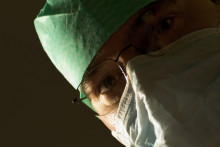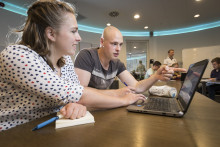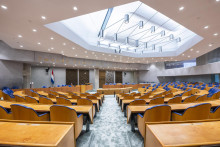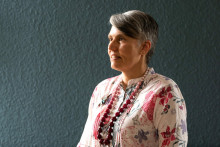Doctors Without Borders is a non-governmental organization, which operates in 67 countries and employs about 30,000 health professionals, who provide emergency medical aid. ‘The main principle of our organization is being impartial, independent and neutral. That can prove difficult especially in conflict areas, but no matter what the political situation, the wounded will always get help from us’, says Van Wijhe.
How are missions organized?
‘After a disaster strikes, first people are send to the location immediately, usually on the very same day. Their task is to see what the situation is and report back. We have operating rooms in tents and sea containers, which ensures fast set-up wherever it’s needed’, explains Van Wijhe. Doctors Without Borders employs mostly local people – in fact, 90% of all the organization’s staff work in their home country.
Van Wijhe clarifies that the organization doesn´t employ only medical professionals: ‘Health specialists represent only about half of the staff. We also need a lot of logistical employees, who keep all the operations running. In case you would like to help out, you surely can.’
Where do they work?
The organization provides help to victims of natural disasters, war and armed conflicts, during outbreaks of diseases and also in countries, where part of the population is for whatever reason excluded from health care. They focus on mother- and childcare, emergency surgeries, vaccinations, but also on mental care and research. Van Wijhe explains: ‘Particularly victims of war often need help of a psychologist. Contributions to scientific research are very important too. We need to show which type of treatment works and which does not.’
Unsafe working environment
As you can probably imagine, working for the Doctors Without Borders isn´t always easy. ‘We often need to reach almost unreachable areas. Access to some countries might be denied because of the political situation and the working environment might be unsafe, because it is often in areas of armed conflicts’, says Van Wijhe. ‘A lot of precautions are taken to assure the safety of our staff – for instance, the cars are always facing out and we never send more than 10 expats to the location, so they can be easily evacuated if needed. Still, we often work on the edge of what is humanly possible.’







